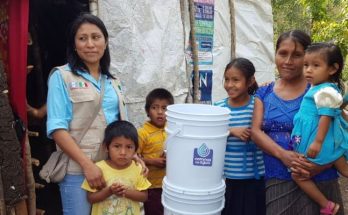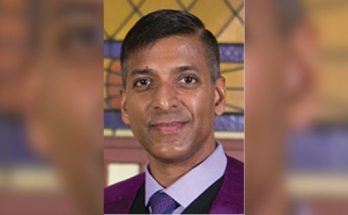Jóvenes Adelante Students on the Relationship of the People within the Territory of Turícuaro
By Norma Alvarez Baeza
Imagine that an entire community becomes conscious of their relationship with the
territory they inhabit, with the environment, the distribution of land, and the contamination
of their resources, such as water and land! By making that relationship conscious, they
no longer see it solely as their traditions, but as a reality with the possibility of change.
They identify community issues and can replace a legacy of problems for future
generations with one of sustainability.
This may be possible in the Purépecha community of Turícuaro, a town in the state of
Michoacán, Mexico, where our scholarship student Mariano Monzón, together with a group
of classmates from the Social Studies and Local Management department at Escuela
Nacional de Estudios Superiores Morelia, UNAM (National School of Higher Studies
Morelia), began a journey with the academic task of carrying out a social diagnosis of the
community. The students applied a participatory methodology with the community,
paying special attention to cultural identity, problems and needs.
This team of students began with pre-diagnostic research. They documented demographic,
social and political issues in Turícuaro. Mariano commented that this town has a communal
government, meaning that its political structure is governed by counselors and a general
assembly conformed by adult members of the community. They have access to state
resources and manage them collectively.
The community assessment consisted of generating spaces for meetings and reflection. The
students conducted interviews, focus groups and workshops, totaling 64 activities at the end
of the process. They worked with inhabitants of different ages and occupations in the
community. The young people of Turícuaro stood out for their involvement and
willingness, as well as their vision of the problems, how they affect people and the
alternatives to solve them. Mariano and his team see a great potential for the youth to work
on proposals to face the problems of Turícuaro, to later present them formally to the
counselors and assembly, and this way open the historical gap of their participation.
Mariano points out that youth participation in community decision-making is limited.
However, speaking both Purépecha and Spanish, they serve as a communication bridge
between the adults and the work team.
Mariano comments: “The project is in its initial phase, and is expected to be completed in
December. I feel excited that my knowledge is not just staying on paper – it is being applied
and useful, and will improve living conditions, going beyond theoretical conclusions.
Building spaces for youth to express themselves, increasing involvement and creating
support networks in the political life of their community is very satisfying. Guiding the
transformation moves me in many ways on a personal and professional level.”
Mariano, like many Jóvenes Adelante students and graduates has found his vocation and
is being an agent of change. Students like him are waiting for an opportunity to study a
university career that will allow them to fulfill their professional dreams. Learn about the
different ways to support them at www.jovenesadelante.org.




